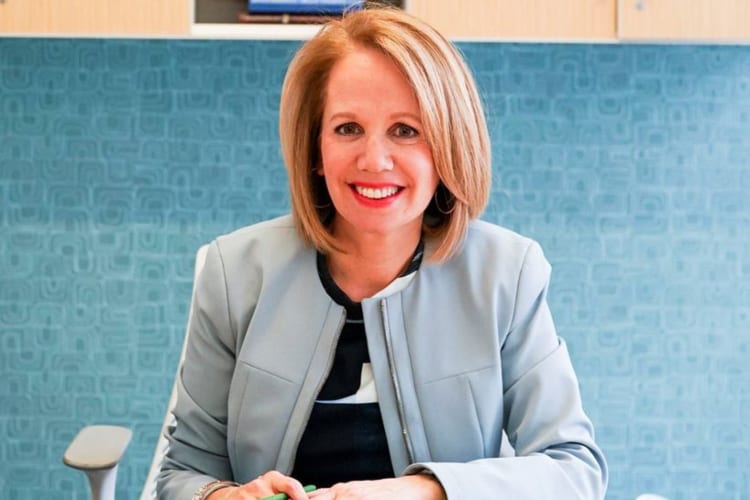
Let’s face it: no one enjoys difficult conversations. From breakups and firings to simple requests or reprimands, even the tiniest confrontations can bring many anxiety and stress. However, you can make alot of the challenge vanish by bringing in one little phrase to your dialogue vocabulary…
The Origins of the Phrase

When Liz Kaplow, seen above, first opened the Kaplow Communications Agency, a successful brand agency, she felt quite satisfied with her team’s work output. However, as a communications major, Kaplow wanted to quickly figure out how to best communicate with her team. Eventually, she developed a system she calls T.R.E.E., which stands for trust, respect, energy, and enthusiasm – words that the C.E.O. treasures the most. The idea also comes from Kaplow’s own experience of buying her house, which had a beautiful tree growing in the middle of it. “[Most] of the house was in total shambles. I couldn’t even believe that we got a house like this that needed so much work done, but that tree was amazing,” Kaplow recalled. It brought her a sense of peace as she dealt with the rest of the issues in the home. “I started wondering if I could transfer that feeling of peace I felt into the culture of our office,” she said.
Now, those words, trust, respect, energy, and enthusiasm influence everything Kaplow and her team try and achieve. “They represent that amazing tree. Something that’s growing, that has roots — it sounds a little bit crazy, but everybody talks about it in our office. It’s become the root of our culture,” Kaplow said. As the trust spread through her team, Kaplow started to wonder if she could create a phrase that would pass along this sense of trust to anyone. Little did she know she would discover a phrase that would make all her difficult conversations a lot easier!
Making Difficult Conversations Easier

As Kaplow tried to think of a way for people to trust her instantly, an old memory came to mind. “My best friend and I used to have this thing, we’d say ‘I’m for you.’ Basically, that means that we knew that we always wanted the best for each other,” she explained. Now, she recommends that everyone use this phrase, or some version of it, like “I’m here for you,” “please contact me if you need anything,” or “I want the best for you.” These phrases let the person you’re talking to that you have their back, no matter what the circumstances. As such, they are far more likely to take what you are saying to heart.
So, does Kaplow have any other advice for having difficult conversations? “I don’t know if it’s the most exciting, but the best advice I ever received — it may seem kind of old school, but it’s absolutely new school when you think about how much it applies — is to remember the basics,” she stated. That means keep an even tone of voice, speak slowly, keep eye contact, and have friendly body language. Once again, these all make the participant much more receptive to the difficult conversation.
Finally, Kaplow wants everyone to know an interaction begins before the first word. “When you walk over to somebody in a positive way with good energy, they bring that energy back to you,” she said. Give to receive – what great advice!
Sources: Living101, TriveGlobal.
